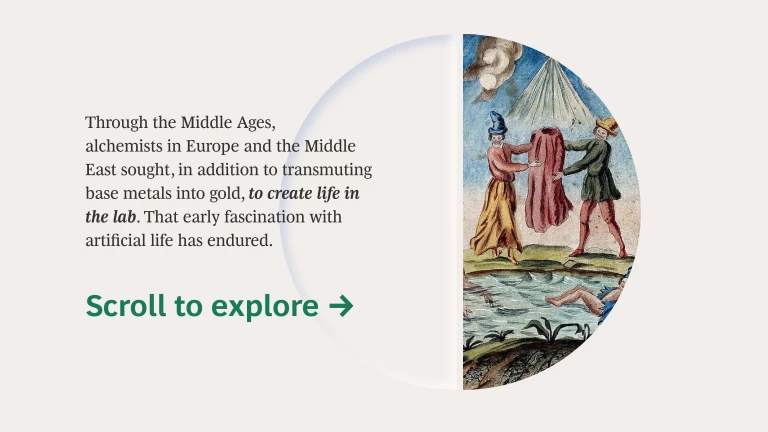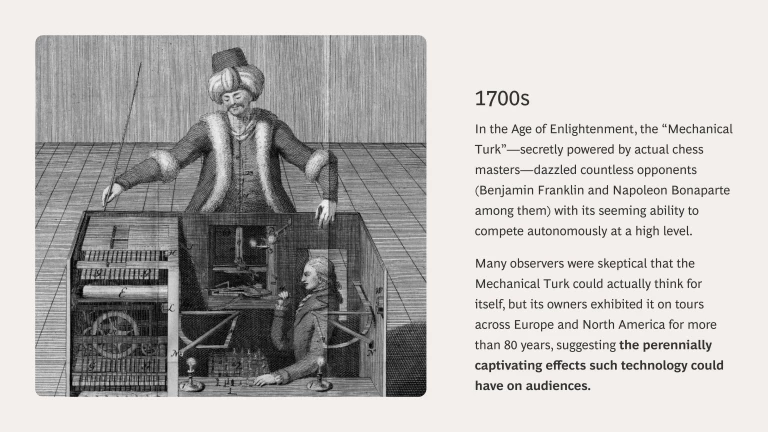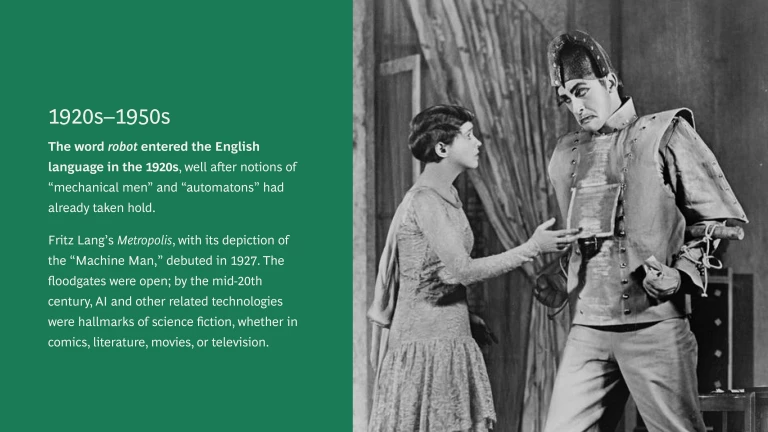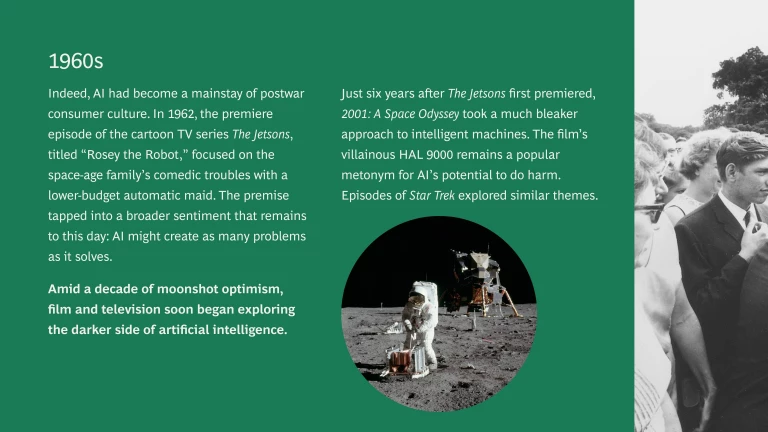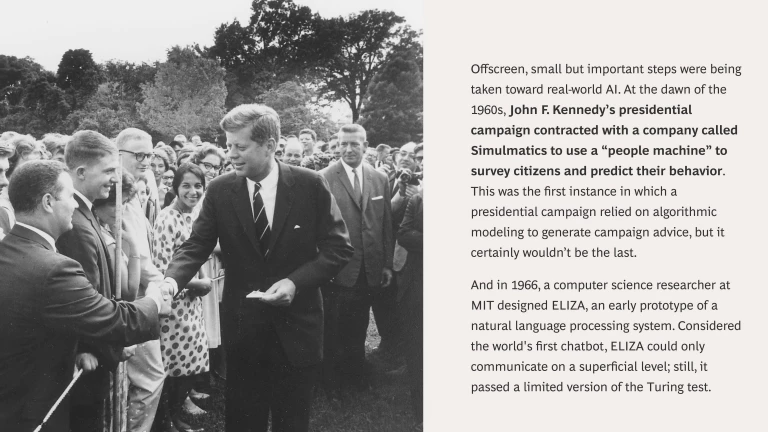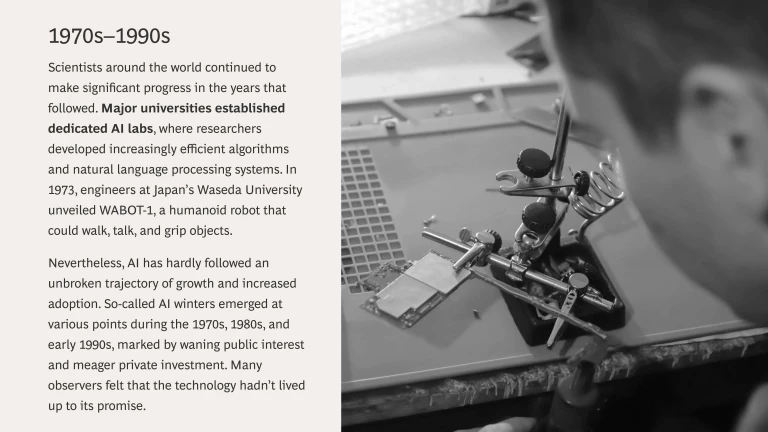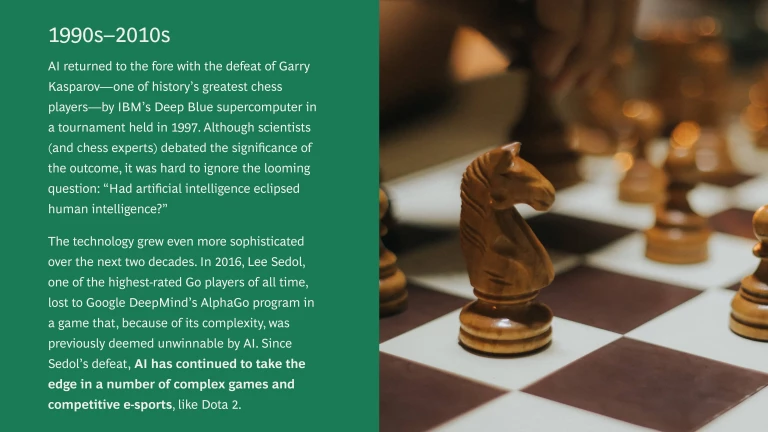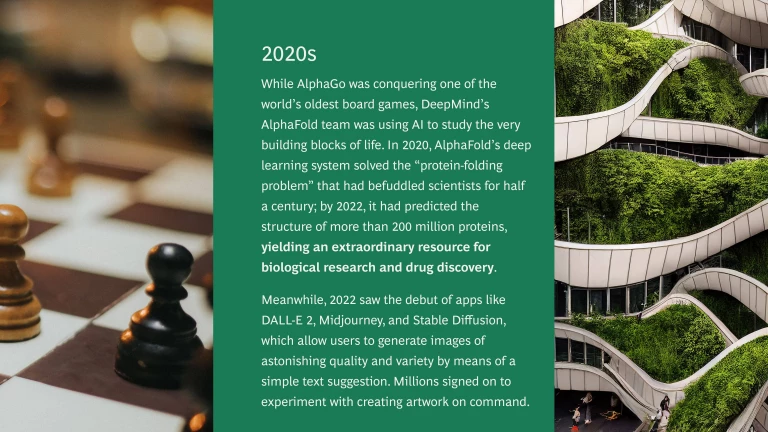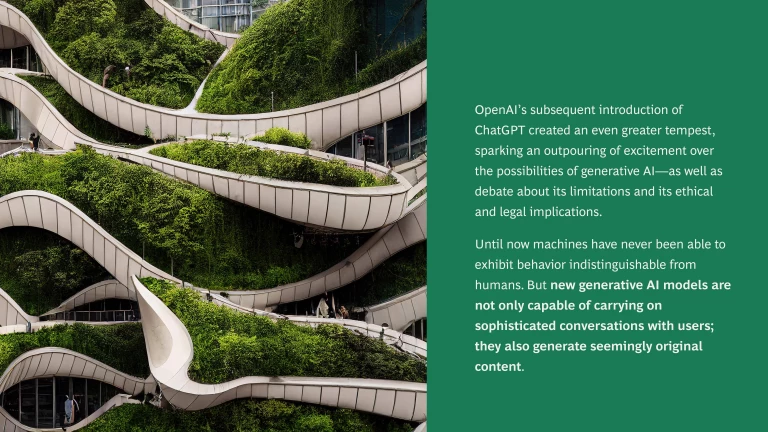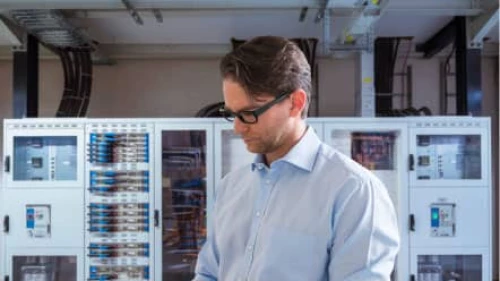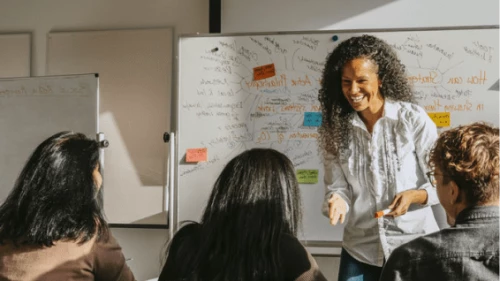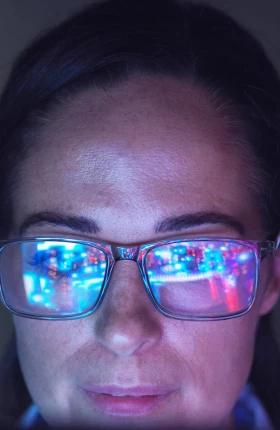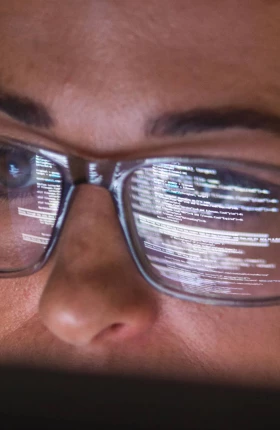It’s hard to imagine an activity or industry that AI isn’t already reshaping. And with the emergence of generative AI, it’s clear we’ve barely scratched the surface. AI technology has the potential to work wonders. But that bright future depends on our ability to develop AI responsibly now.
Artificial intelligence: friend or foe?
We’re living in a critical moment. AI systems are advancing at warp speed. And while the latest headlines about generative AI alternate between amazement and alarm, the full implications—immediate and long term—remain uncertain.
As AI plays an increasingly integral role in business and society, the question on many people’s minds is: “What does the rise of intelligent machines mean for our work and our lives?”

Vladimir Lukic
This is a modal window.

Vladimir Lukic
So what does the rise of intelligent machines mean for our work and our lives?
We desperately need help with issues like climate change, public health and safety, food and water security, and more. While it may be unnerving to admit the limits of our own intelligence, we can’t afford to ignore the potential benefits of AI when it comes to solving some of humanity’s biggest challenges.
The history of humans and machines
Long before Alan Turing introduced his eponymous test or Blade Runner asked audiences to question the line between human and machine intelligence, ancient civilizations built myths around lifelike, robotic creations that could walk and talk without human intervention.
We’re going on a journey that takes us back to 1400.
AI is changing the world at lightning speed
Its potential applications, power, and ability to disrupt seem almost infinite. At the same time, our fascination with creating intelligence that can function outside of ourselves is as boundless—and as tinged with anxiety—as ever. Many of us fear the impact AI will have on our livelihoods and our privacy.
In a world of sophisticated algorithms, how can I know what’s real and what’s not?
Will critical decisions about my health and well-being be made by machines?
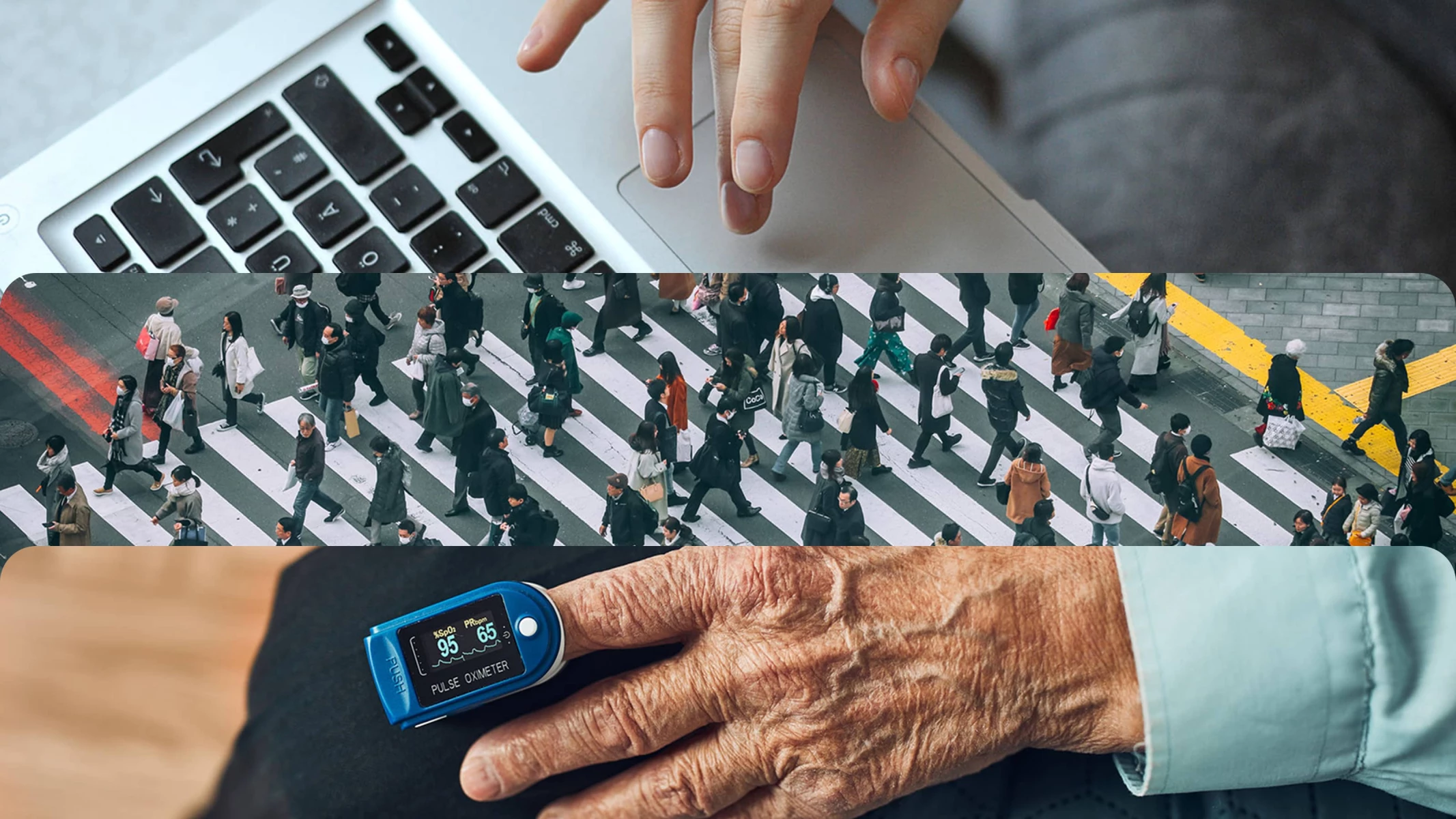
It’s easy to feel overwhelmed by the ongoing AI revolution. But advances in AI will have profound, positive effects on all of us.
It’s already happening, in fact. Individuals are exploring the limitless creativity generative AI tools can offer. Businesses are discovering that AI provides a critical source of competitive advantage. And governments are studying ways to implement AI to improve their interactions with citizens and achieve broader policy objectives.
AI is reshaping the roles we play as consumers, citizens, employees, students, patients, leaders, and more. When we apply our human IQ and EQ to figure out the best and most responsible way to deploy AI, we’ll all reap the benefits.
Learn how organizations can deploy AI responsibly, and explore the many ways AI technology can improve your life.
When it comes to deploying AI, many BCG experts like to cite the 10-20-70 rule.
This underscores the importance of the human component in AI implementation. It’s also a reminder of the careful innovation and collaboration necessary to ensure that responsible AI works for the betterment of humanity.
It is well within the power of businesses, society, and individuals to build a bright AI-powered future.
Businesses have a unique responsibility—and opportunity—in this regard.
As they design, develop, and deploy AI systems, companies must set and maintain ethical guardrails for the use of such technologies. The emergence of generative AI only underscores the need to embed responsible AI practices throughout an organization.
Looking beyond the role of business, each of us must harness our innate human strengths and commit to understanding the true role of AI: it’s an artificial, amplified, augmented form of intelligence, not a wholesale alternative to human ingenuity.
This combination—human ingenuity and artificial intelligence—can be much more powerful than the sum of its parts. AI will do what it does best: dealing with massive amounts of data and solving complex problems. And humans will do what we do best: applying our creativity, our judgment, our empathy, and our ethics as we use AI to help advance the world.
What's the task ahead?
Let's focus on improving our quality of life and discovering what we can do when liberated from routine and mundane tasks—free to spend more time exploring and expanding our uniquely human capabilities.

